Your search “Keep%20the%20Death%20Penalty%20Abolished%20fin%20the%20Philippfines%20%20%20%20%20%20%20%20%20%20/page/cdm16501.contentdm.oclc.org/cdm/ref/collection/criminal/id/154 ”

Article(s)
European Protocol for full abolition turns 20
By World Coalition Against the Death Penalty, on 3 May 2022
Today is the 20th anniversary of the adoption of Protocol No. 13 to the Convention for the Protection of Human Rights and Fundamental Freedoms, concerning the abolition of the death penalty in all circumstances.
2022
Armenia
Azerbaijan

Article(s)
Abolition of the death penalty at the United Nations Human Rights Council 49th session
By Aurelie Placais, staff, on 3 May 2022
The 49th session of the UN Human Rights Council took place from 28 February to 1 April 2022. If you missed it, here’s what happened in relation to the abolition of the death penalty!
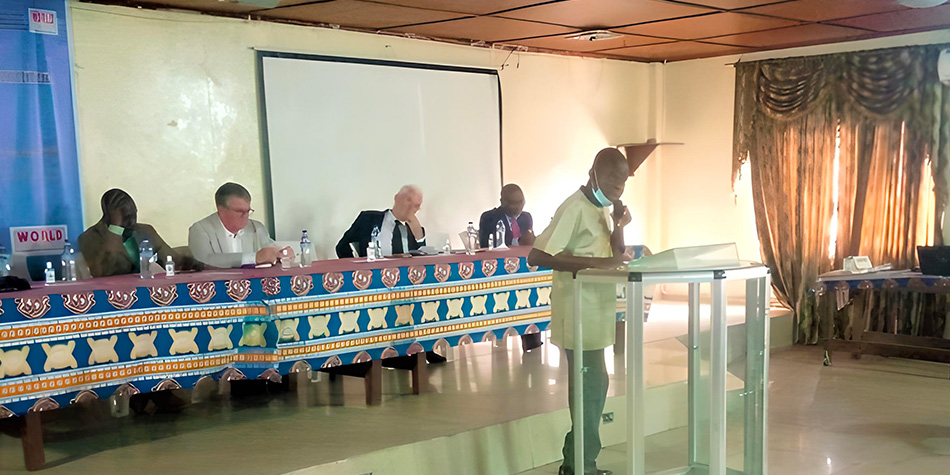
Article(s)
Liberian Civil Society Organize to Push for Abolition
By Rescue Alternatives Liberia and the World Coalition Against the Death Penalty, on 29 April 2022
On 12 April 2022, Rescue Alternatives Liberia (RAL) orchestrated a one-day forum on abolition in Liberia with the support of the World Coalition Against the Death Penalty. The outcomes of this event were very promising, and time will tell if abolition in Liberia is near.
2022
Liberia
Public Opinion

Article(s)
Plans to carry out arbitrary executions in Myanmar must halt immediately
By World Coalition Against the Death Penalty , on 23 June 2022
The undersigned organizations are gravely concerned at the recent announcement by the military authorities of Myanmar that the death sentences imposed on four people after grossly unfair proceedings have been approved for implementation.
2022
Cruel, Inhuman and Degrading Treatment and Punishment
Fair Trial
Legal Representation
Myanmar

Article(s)
NGOs voice fears for dozens of Egyptian prisoners, and hundreds of others, facing execution for drugs-related offenses in Saudi Arabia
By World Coalition Against the Death Penalty, on 13 September 2024
We, the undersigned organisations, are gravely fearful for the lives of hundreds of prisoners threatened with imminent execution in Saudi Arabia on drugs-related charges, including 33 Egyptians on a single wing of Tabuk Prison.
2024
Drug Offenses
Saudi Arabia
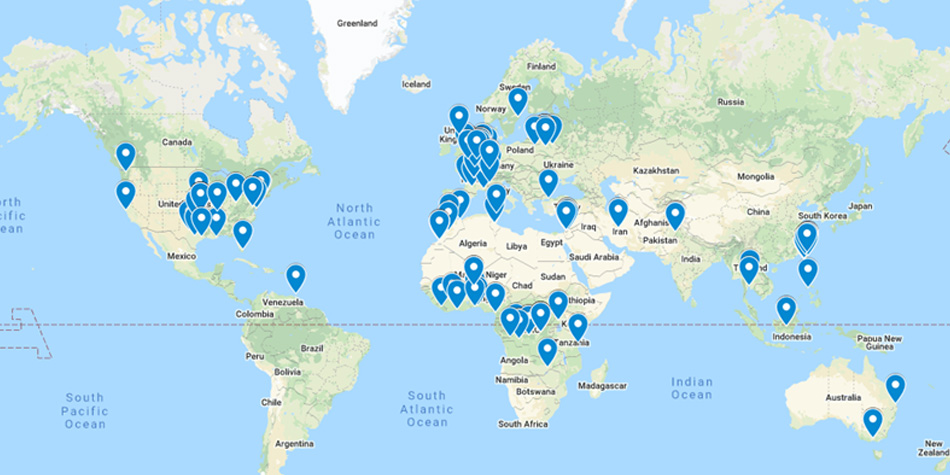
Article(s)
Take Action for World Day 2022!
By World coalition against the death penalty, on 9 September 2022
Take action now! The 20th World Day Against the Death Penalty is an excellent opportunity to publicly oppose the use of this inhumane punishment and to support those who are fighting for its abolition all over the world. > Spread the word on Facebook, Twitter and Instagram: #nodeathpenalty > Find out more about the World […]
2022
Cruel, Inhuman and Degrading Treatment and Punishment
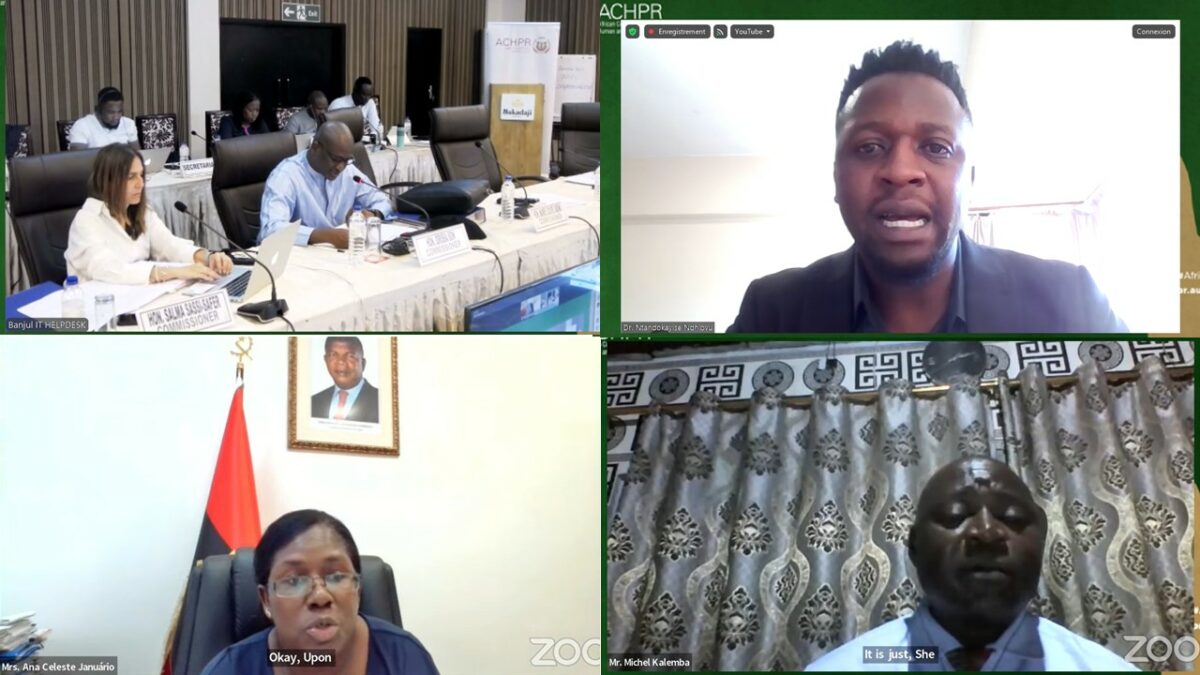
Article(s)
Key Outcomes from the 79th Ordinary Session of the African Commission on Human and Peoples’ Rights
By Isabella Ataides, on 26 September 2024
From 14 May to 3 June 2024, the African Commission on Human and Peoples’ Rights (ACHPR) held its 79th Ordinary Session in a hybrid format. Members of the Commission and staff of its Secretariat physically attended the Session in Banjul, Gambia; all other participants attended the Session online via Zoom.
2024
Trend Towards Abolition
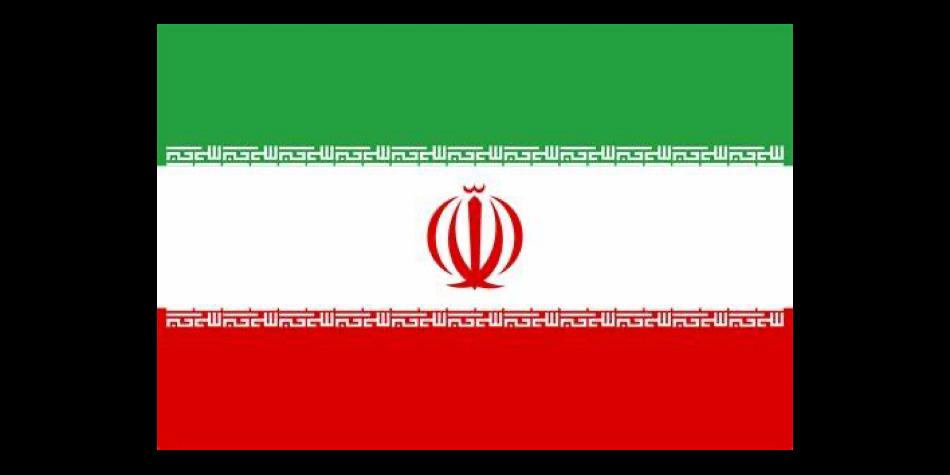
Article(s)
Joint Statement to condemn the public executions and the surge of executions in 2022 in Iran
By World Coalition Against the Death Penalty, on 11 August 2022
The World Coalition Against the Death Penalty strongly condemn the resumption of public executions in Iran and the surge in the executions in 2022, which goes against the international trends towards abolition of the death penalty.
2022
Iran (Islamic Republic of)
Page(s)
What is the Risk that the Death Penalty Will Return in Your Country?
on 20 August 2021
This interactive tool will allow you to identify the threat levels of the resurgence of the death penalty in your country. It is based on key indicators drawn from the experience of the World Coalition’s pilot project in three countries: the Maldives, the Philippines and Turkey from 2018 to 2021.
2021
Article(s)
World Coalition takes part in UN death penalty report launch
on 30 May 2010
The World Coalition held a side event to accompany the presentation of the 8th Quinquennial Report of the UN Secretary General on capital punishment in Vienna on May 19.
2010
Death Row Conditions
Innocence
Juveniles
Legal Representation
Article(s)
Significant but fragile progress in the Great Lakes region
on 1 May 2007
Rwanda and Burundi are apparently close to abolishing the death penalty; in the Democratic Republic of Congo, all references to capital punishment have been removed from the text of the constitution. The death penalty is on borrowed time in these countries scarred by conflicts. For the first time, the region’s abolitionists met in Paris and called for the creation of a regional coalition.
2007
Democratic Republic of the Congo
Public Opinion

Article(s)
75th UN General Assembly High-Level Event Focuses on the Gender Dimension of the Death Penalty
By Gia Tongson, on 6 October 2020
On September 24th, the UN Permanent Mission of Italy, the European Union, and Amnesty International, in cooperation with the UN Office of the High Commissioner on Human Rights (OHCHR) and UN Women, held a high-level virtual event that shed light on the gender dimension of the death penalty. The webinar was conducted as part of […]
2020
Death Row Conditions
Fair Trial
Women

Article(s)
Unfair trials and the death penalty for terrorism in Iraq
By Majdoulin Sendadi, on 13 January 2020
From January until August 2019, Iraq executed more than 100 individuals accused of being affiliated with Daesh, according to Kurdish media network Rudaw.
2020
Iraq
Terrorism
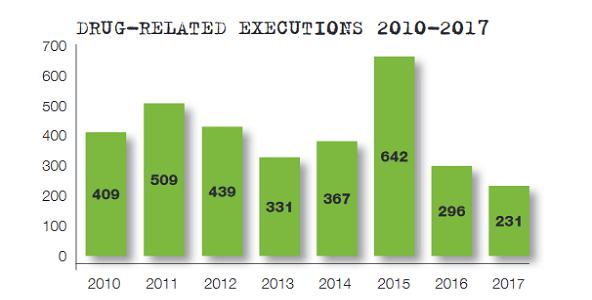
Article(s)
Iran Execution Trends Six Months After the New Anti-Narcotics Law
By Iran Human Rights (IHR), on 29 May 2018
On Monday, May 10, 2018, Iran Human Rights (IHR) reported the execution of Kiomars Nasouhi, a prisoner sentenced to death for drug offenses. This execution is the first drug-related execution registered by IHR since the latest amendment to the Anti-Narcotics Law was enforced on November 14, 2017.
2018
Iran (Islamic Republic of)

Member(s)
Project 39A
on 13 September 2022
Project 39A is a criminal justice initiative, based in the National Law University, Delhi – a prestigious public university in New Delhi. Inspired by Article 39-A of the Indian Constitution, Project 39A’s work furthers the intertwined values of equal justice and equal opportunity. Project 39A uses empirical research to re-examine policies on various criminal justice […]
2022
India
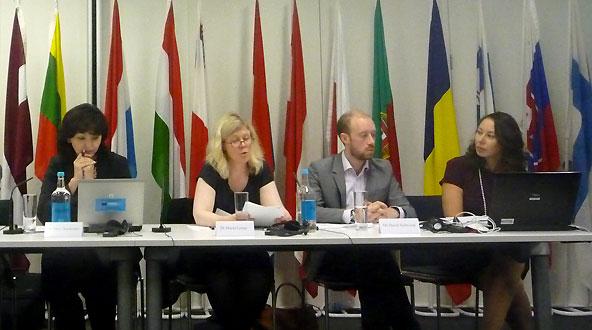
Article(s)
Opening up the debate in countries with the death penalty
By Penal Reform International, on 19 September 2011
On 19 and 20 September, World Coalition member organisation Penal Reform International (PRI) is bringing 120 people from retentionist countries to London to discuss global trends towards abolition of the death penalty.
2011
Cruel, Inhuman and Degrading Treatment and Punishment
Public Opinion
Syrian Arab Republic
United Kingdom
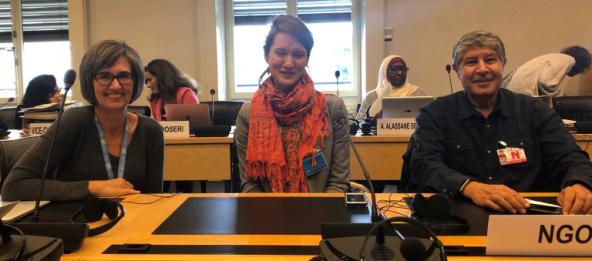
Article(s)
The Rights of Children Whose Parents Are Sentenced to Death – The Case of Tunisia
By Lisa Borden, volunteer with The Advocates for Human Rights, on 30 October 2019
I joined Bronwyn Dudley of the World Coalition Against the Death Penalty, and Choukri Latif of the Coalition tunissiene contre la peine de mort (a Tunisian anti-death penalty NGO), to address the committee regarding Tunisia’s failure to implement the rights of children whose parents have been sentenced to death or were executed.
2019
Juveniles
Tunisia
Article(s)
Legal Officer – The Death Penalty Project
By The Death Penalty Project, on 23 January 2018
The Death Penalty Project recruits a Legal Officer.
2018
United Kingdom
Document(s)
Taiwan: Amicus Curiae submission by Amnesty International and the World Coalition Against the Death Penalty to the Constitutional Court
By Amnesty International, on 23 April 2024
2024
NGO report
Taiwan
zh-hantMore details See the document
Published on April 8, 2024.
As the Constitutional Court of the Republic of China considers a challenge to the constitutionality of the death penalty, Amnesty International Taiwan and the World Coalition Against the Death Penalty submitted a joint amicus curiae intervention, to ensure the protection of the rights of all those under sentence of death. The amicus interveners argue that the use of the death penalty in the Republic of China constitutes a violation of human rights as guaranteed under the Constitution and international law and standards; and sets the country against the global trend, which remains overwhelmingly in favour of abolition.
- Document type NGO report
- Countries list Taiwan
- Available languages 憲法法庭法庭之友意見書 主案案號:111年度憲民字第904052號 法庭之友:國際特赦組織台灣分會 均詳委任狀 代 表 人:林綉娟 理事長 代 理 人:陳瑋珊 律師 均詳委任狀 均詳委任狀
Article(s)
Research Assistant
By Death Penalty Worldwide, Cornell Law School and World Coalition Against the Death Penalty, on 8 February 2016
Death Penalty Worldwide of Cornell University Law School and the World Coalition Against the Death Penalty invite applications for a five-month internship placement in Paris from March to July 2016.
2016
Document(s)
Compendium of case law of the European Court of Human Rights on the death penalty and extrajudicial execution
By Jeremy McBride, Council of Europe, on 24 April 2022
2022
International law - Regional body
Legal Representation
More details See the document
The compendium’s aim is to assist national judges, prosecutors and lawyers from the 46 member states of the Council of Europe to deal with extradition or deportation cases when there is a risk of the death penalty being imposed in third countries or of extrajudicial execution. It also aims at enabling legal professionals from countries where the death penalty still exists to develop arguments based upon the reasoning of the case law of the European Court of Human Rights. It contains relevant extracts from the Court’s case law, structured in a user-friendly way.
- Document type International law - Regional body
- Themes list Legal Representation
Document(s)
Broken Promises: How a History of Racial Violence and Bias Shaped Ohio’s Death Penalty
By Death Penalty Information Center , on 14 May 2024
2024
NGO report
Fair Trial
Innocence
Trend Towards Abolition
United States
More details See the document
In January 2024, Ohio lawmakers announced plans to expand the use of the death penalty to permit executions with nitrogen gas, as Alabama had just done a week earlier. But at the same time the Attorney General and the Ohio Prosecuting Attorneys Association are championing this legislation, a bipartisan group of state legislators has introduced a bill to abolish the death penalty based on “significant concerns on who is sentenced to death and how that sentence is carried out.” The competing narratives make it more important than ever for Ohioans to have a meaningful, accurate understanding of how capital punishment is being used, including whether the state has progressed beyond the mistakes of its past.
- Document type NGO report
- Countries list United States
- Themes list Fair Trial / Innocence / Trend Towards Abolition
Document(s)
ICDP Launches How States abolish the Death Penalty: A Supplement of Case-Studies
By International Commission against the Death Penalty, on 17 November 2022
2022
NGO report
More details See the document
An increasing number of countries have recognized that state killing undermines human dignity and respect for human rights, such as the discriminatory use of the death penalty, the use of forced confession that increases the possibility of executing an innocent person, and the lack of deterrence effect of capital punishment. This move towards abolition of the death penalty is being witnessed in all regions of the world regardless of political system, religion, culture or tradition. As of today, at least 110 countries have abolished the death penalty for all crimes, while at least eight countries have abolished for ordinary crimes, while less than 20 countries have reportedly
carried out executions in 2021.
This publication is a supplement to the ICDP´s 2018 work on “How States Abolish the Death Penalty: 29 Case Studies.”
- Document type NGO report
Document(s)
The Use of the Death Penalty as a Bargaining Chip in Innocence Cases
By Claudia I. Salinas, California Western International Law Journal, on 1 February 2024
2024
Academic Article
United States
More details See the document
Published in 2023.
While 70% of the world’s countries have abolished the death penalty, also known as capital punishment, much of the United States continues to use it in its criminal legal proceedings.According to the Death Penalty Information Center, at least 190 people were exonerated prior to their fated execution date after being wrongly convicted and sentenced to death in the United States. There is no way to tell how many of the 1,562 people, who have been executed in the United States, were actually innocent. As there are wrongful convictions still happening today, it is no surprise that most countries consider the death penalty a human rights issue.
- Document type Academic Article
- Countries list United States
Document(s)
The Road to Abolition?: The Future of Capital Punishment in the United States
By Charles J. Ogletree and Austin Sarat, on 24 August 2023
2023
Book
United States
More details See the document
At the start of the twenty-first century, America is in the midst of a profound national reconsideration of the death penalty. There has been a dramatic decline in the number of people being sentenced to death as well as executed, exonerations have become common, and the number of states abolishing the death penalty is on the rise. The essays featured in The Road to Abolition? track this shift in attitudes toward capital punishment, and consider whether or not the death penalty will ever be abolished in America.The interdisciplinary group of experts gathered by Charles J. Ogletree Jr., and Austin Sarat ask and attempt to answer the hard questions that need to be addressed if the death penalty is to be abolished. Will the death penalty end only to be replaced with life in prison without parole? Will life without the possibility of parole become, in essence, the new death penalty? For abolitionists, might that be a pyrrhic victory? The contributors discuss how the death penalty might be abolished, with particular emphasis on the current debate over lethal injection as a case study on why and how the elimination of certain forms of execution might provide a model for the larger abolition of the death penalty.
- Document type Book
- Countries list United States
Document(s)
The Death Penalty in 2021: Year End Report
By Death Penalty Information Center, on 14 January 2022
2022
NGO report
United States
More details See the document
The death penalty in the USA in 2021 was defined by two competing forces: the continuing long-term erosion of capital punishment across most of the country, and extreme conduct by a dwindling number of outlier jurisdictions to continue to pursue death sentences and executions.
- Document type NGO report
- Countries list United States
Document(s)
The Fear of Too Much Justice : Race, Poverty, and the Persistence of Inequality in the Criminal Courts
By Stephen B. Bright, James Kwak , on 21 April 2023
2023
Book
Fair Trial
United States
More details See the document
In The Fear of Too Much Justice, legendary death penalty lawyer Stephen B. Bright and legal scholar James Kwak offer a heart-wrenching overview of how the criminal legal system fails to live up to the values of equality and justice. The book ranges from poor people squeezed for cash by private probation companies because of trivial violations to people executed in violation of the Constitution despite overwhelming evidence of intellectual disability or mental illness. They also show examples from around the country of places that are making progress toward justice.
With a foreword by Bryan Stevenson, who worked for Bright at the Southern Center for Human Rights and credits him for “[breaking] down the issues with the death penalty simply but persuasively,” The Fear of Too Much Justice offers a timely, trenchant, firsthand critique of our criminal courts and points the way toward a more just future.
Available: June 2023
- Document type Book
- Countries list United States
- Themes list Fair Trial
Document(s)
Abolitionnist portrait
By World Coalition against the death penalty , on 10 October 2004
2004
Campaigning
Trend Towards Abolition
frMore details See the document
Abolitionnist portrait
- Document type Campaigning
- Themes list Trend Towards Abolition
- Available languages Portrait d'abolitionnistes
Document(s)
The Death Penalty in Bahrain: A system built on torture
on 14 January 2022
2022
NGO report
Bahrain
arfrMore details See the document
Salam for Democracy and Human Rights (Salam DHR)’s report was published on October 10, 2021, to mark the 19th World Day Against the Death Penalty. The Death Penalty in Bahrain: A system built on torture, provides accessible and abridged information regarding the development of the death penalty in Bahrain.
This report examines how executions have expanded in both their criteria and implementation since the Arab Spring in 2011 and how this practice contradicts the Government of Bahrain’s (GoB) promises of reform made following the Bahrain Independent Commission of Inquiry (BICI) that same year. Instead, the Bahraini State continues to rely on confessions coerced under torture and threats as a method of permanently silencing poliIcal prisoners. The nation’s internal mechanisms of accountability have repeatedly proven themselves to be ineffective in remedying this situation and are possibly complicit. Considering these findings, and in support those who have been victimized, Salam DHR officially recommends that the GoB abolishes the death penalty, among other reforms.
- Document type NGO report
- Countries list Bahrain
- Available languages عقوبة الإعدام في البحرين : نظام مبني على التعذيبLa Peine de Mort à Bahreïn: Un Système Construit sur la Torture
Document(s)
Death Penalty Politics: The Fragility of Abolition in Asia and the Pacific
By Mark Finnane, Mai Sato and Susan Trevaskes, on 1 September 2022
2022
Academic report
More details See the document
Despite a steady increase worldwide in the number of states that have abolished the death penalty, capital punishment remains a troubling presence in the international order. The world’s leading powers in terms of economics and population include the retentionist states of China, India, Japan and the United States of America (USA). It seems there is no linear path to abolition, and its achievement is indeterminate. Yet, in international human rights law, death penalty abolition is a powerful norm embraced by half the countries across the world. While the majority of death penalty research has emanated from and focuses on the USA, well over 90 per cent of global executions occur in Asia, which lags behind the global trend towards abolishing the death penalty. Our symposium and this collection seek to bring perspectives from a variety of disciplines and methods—historical, legal, sociological, comparative— to bear on the questions of retention and abolition in a variety of jurisdictions and time periods.
This article was first published in Crime Justice Journal: https://www.crimejusticejournal.com/issue/view/119
- Document type Academic report
Document(s)
Death by Design: Part 1
By The Wren Collective , on 23 January 2024
2024
NGO report
Legal Representation
United States
More details See the document
Published in December 2023.
In “Death by Design” Parts 1 and 2, Wren investigated the state of court-appointed capital representation in Harris County—the death penalty capital of the world.The first report delves into the failings of the lawyers in capital cases.
Wren recommends a total overhaul to the system of capital representation for poor defendants in Harris County, with either the public defender absorbing those cases or the judges establishing a new, freestanding capital public defender that is independent from judicial oversight.
- Document type NGO report
- Countries list United States
- Themes list Legal Representation
Document(s)
REPORT ON THE CRIMINAL JUSTICE SYSTEM IN TRINIDAD AND TOBAGO
By Bar Human Rights Committee, on 1 January 2003
2003
NGO report
More details See the document
The purpose of the Report is to assist the Honourable Court by describing the criminal justice process in Trinidad as it applies to those accused of murder. As a criminal defence and constitutional law attorneys in Trinidad, we have been asked to address, in particular, some of the shortcomings apparent in the Trinidadian criminal justice system and certain related constitutional issues. The Report deals with the following issues: a. The constitutional history and sources of law in Trinidad; b. The law of murder in Trinidad; c. An overview of criminal procedure; d. The stages of the criminal process in murder cases; e. The mandatory death penalty; f. The prerogative of mercy.
- Document type NGO report
- Themes list Networks,

Article(s)
ADPAN welcomes Mongolia’s decision abolish death penalty in law
By ADPAN, on 18 December 2015
Mongolia abolished the death penalty for all crimes in law on 3 December 2015 by adopting a new Criminal Code without any reference to capital punishment. Mongolia had already taken a strong commitment in 2012 by ratifying the Second Optional Protocol to the ICCPR, and it was one of the World Coalition’s target countries for the follow-up of the ratification campaign. The new Criminal Code will come into effect in September 2016
2015
Document(s)
World Coalition Activity Report 2022
By World Coalition Against the Death Penalty, on 22 August 2023
2023
World Coalition
Trend Towards Abolition
frMore details Download [ pdf - 323 Ko ]
- Document type World Coalition
- Themes list Trend Towards Abolition
- Available languages Rapport d'Activité de la Coalition Mondiale 2022

Member(s)
The Advocates for Human Rights
on 30 April 2020
The mission of The Advocates for Human Rights is to implement international human rights standards in order to promote civil society and reinforce the rule of law. By involving volunteers in research, education, and advocacy, The Advocates build broad constituencies in the United States and select global communities. In 1991, The Advocates adopted a formal […]
2020
United States
Document(s)
Qatar – Human Rights Committee – Death Penalty – January 2022
on 31 January 2022
2022
NGO report
World Coalition
Qatar
More details Download [ pdf - 236 Ko ]
Qatar had been maintaining a de facto moratorium on executions since 2000, but courts continued to sentence people to death. In 2020, however, Qatar executed a Nepali migrant worker by firing squad. Qatar’s death penalty practices are not in compliance with the Covenant. Qatar does not limit the death penalty to the most serious crimes, it is not taking steps toward a de jure moratorium on executions or ratification of the Second Optional Protocol, and it does not ensure that defendants in capital cases have a fair trial. Recent history suggests that a migrant worker may be more likely to be sentenced to death and executed for killing a Qatari national, as opposed to a non-citizen. Migrant workers are particularly vulnerable in the context of the country’s criminal legal system.
- Document type NGO report / World Coalition
- Countries list Qatar
Document(s)
The Death Penalty in 2023: Year End Report
By The Death Penalty Information Center (DPIC), on 25 January 2024
2024
NGO report
Public Opinion
United States
More details See the document
Published on December 01, 2023.
Innocence cases dominated much of the media’s attention on death penalty cases in 2023. While these prisoners were largely unsuccessful in the courts, there was unprecedented support for their claims from state legislators, prosecutors, judges, and other elected officials, some of whom declared themselves newly disillusioned with use of the death penalty in their state. This year is the 9th consecutive year with fewer than 30 people executed (24) and fewer than 50 people sentenced to death (21, as of December 1). The 23 men and one woman who were executed in 2023 were the oldest average age (tied with 2021) and spent the longest average number of years in prison in the modern death penalty era before being executed. As in previous years, most prisoners had significant physical and mental health issues at the time of their executions, some of which can be attributed to the many years they spent in severe isolation on death row. Continued difficulties obtaining lethal injection drugs led some states to explore new, untested methods of execution or revive previously abandoned methods. Other states enacted or continued pauses on executions while the state’s method of execution was studied.
- Document type NGO report
- Countries list United States
- Themes list Public Opinion
Document(s)
2022 World Day Report
By World coalition against the death penalty, on 12 June 2023
2023
Campaigning
World Coalition
frMore details Download [ pdf - 1557 Ko ]
On 10 October 2022, the World Coalition and abolitionists around the world celebrated the 20th World Day Against the Death Penalty (‘World Day’). Every year on World Day, the World Coalition highlights one problematic aspect of the Death Penalty.
- Document type Campaigning / World Coalition
- Available languages Rapport journée mondiale 2022

Article(s)
FIACAT and ACAT Benin congratulate Benin on having removed the death penalty from its criminal legislation
By FIACAT, on 6 June 2018
Cotonou, Paris, 6 June 2018 – On 5 June, Benin’s National Assembly adopted a new Penal Code removing all references to the death penalty from the law.
2018
Benin
14-United-Nations-Congress-on-Crime-Prevention-and-Criminal-Justice
on 23 April 2021
2021
Document(s)
2021 OHCHR Report on Deterrence: High-level panel discussion on the question of the death penalty
By Office of the High Commissioner for Human Rights (OHCHR), on 14 January 2022
2022
United Nations report
Public Opinion
aresfrruzh-hantMore details See the document
The present report is submitted pursuant to Human Rights Council resolutions 26/2 and 42/24. It provides a summary of the high-level panel discussion on the question of the death penalty held on 23 February 2021 at the forty-sixth session of the Council. The panel discussion addressed the human rights violations related to the use of the death penalty, in particular with respect to whether the use of the death penalty has a deterrent effect on crime rates.
- Document type United Nations report
- Themes list Public Opinion
- Available languages حلقة نقاش رف عة المستوى بشأن مسألة عقوبة الإعدامInforme de la OACDH 2021 sobre el efecto disuasorio : Mesa redonda de alto nivel sobre la cuestión de la pena de muerteRapport HCDH 2021 sur l'effet dissuasif : Réunion-débat de haut niveau sur la question de la peine de mortОбсуждение в рамках дискуссионной группы высокого уровня вопроса о смертной казни,способствует ли ее применение сдерживанию преступности2021年联合国威慑效应报告 - 关于死刑问题的高级别专题小组讨论会
Document(s)
The Maldives – Committee on the Elimination of Discrimination Against Women – Death Penalty – September 2021
on 20 September 2021
2021
NGO report
World Coalition
Maldives
More details Download [ pdf - 263 Ko ]
The Maldives’ continued use of the death penalty undermines government efforts and commitments to end gender-based discrimination. The death penalty invites discriminatory sentences against women for adultery and other crimes of sexual immorality, as well as for acting as accomplices to murder committed by male counterparts. Capital punishment promotes negative stereotypes about women and reinforces discriminatory gender roles. The possibility of facing the death penalty also discourages human rights defenders from civic engagement on a number of human rights issues, including women’s human rights.
- Document type NGO report / World Coalition
- Countries list Maldives
Document(s)
Yemen – Committee on the Elimination of Discrimination Against Women – Death Penalty – September 2021
on 20 September 2021
NGO report
World Coalition
Women
Yemen
More details Download [ pdf - 272 Ko ]
Women in conflict with the law in Yemen are at risk of experiencing gender-based discrimination within the legal system and while detained. Such discrimination is particularly acute when women are at risk of being sentenced to death. For example, in Houthi-controlled parts of Yemen, women are in danger of being sentenced to death for “spying,” often based primarily on the conduct of their male family members. In parts of the country controlled by the internationally recognized Government of Yemen, women accused of capital offenses are denied legal aid to mount a successful defense. And because of the mandatory nature of the death penalty for crimes such as murder, courts do not take into account an accused woman’s experiences of gender-based violence that may have motivated her actions. Women are also often financially unable to gather sufficient resources to pay “blood money” to victims’ families. Detention conditions for women, particularly in Houthi-controlled parts of Yemen, amount to cruel, inhuman, and degrading treatment and in some cases prison authorities torture women detainees.
Because of continued internal conflict in Yemen, there is limited official data regarding the number of women currently sentenced to death. For the same reason, there is only limited information regarding detention conditions of women sentenced to death.
- Document type NGO report / World Coalition
- Countries list Yemen
- Themes list Women
Article(s)
Program and Admin Assistant (Trainee)
By World Coalition Against the Death Penalty, on 31 March 2020
The World Coalition Against the Death Penalty is recruiting an intern for a period of 6 months going from mid-June to mid December 2020.
2020
Article(s)
Program and Admin Assistant (Trainee)
By World Coalition Against the Death Penalty, on 9 October 2018
The World Coalition Against the Death Penalty recruits an intern for a period of 6 months starting in September 2019.
2018
Article(s)
Call for interns
By Project 39A, on 14 June 2018
Project 39A offers a minimum of four-week long internships to students of law and related fields.
2018
India
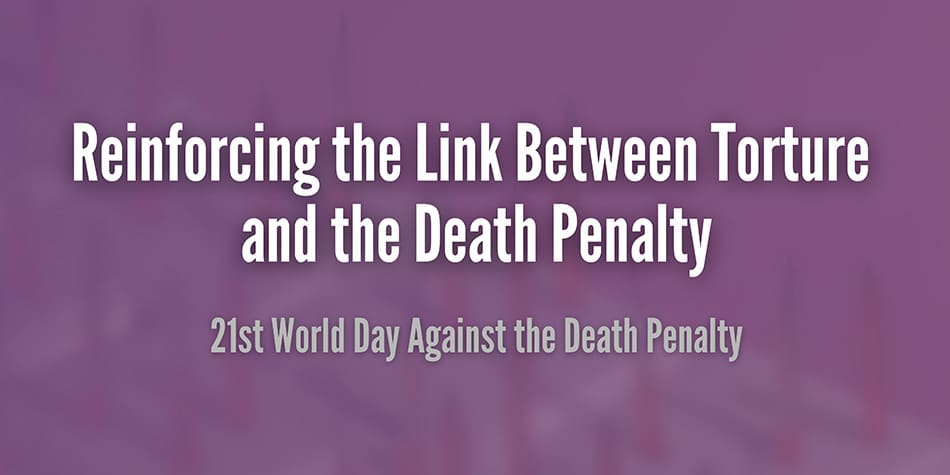
Article(s)
Reinforcing the Link Between Torture and the Death Penalty: 21st World Day Against the Death Penalty
By Venus Aves, on 17 November 2023
“There is no way in today’s world to apply the death penalty in a legal way, in a way that does not violate international law.” This was the bold and unequivocal assertion of former UN Special Rapporteur on Torture Juan Méndez in an online discussion with UN experts and exonerees organized by the World Coalition […]
2023
Cruel, Inhuman and Degrading Treatment and Punishment
Article(s)
Global mobilisation against Iraq’s high-profile death sentences
on 4 December 2010
Several former associates of Saddam Hussein have been sentenced to death. The Iraqi President, NGOs and international diplomats are now fighting to save their lives.
2010
Clemency
Iraq
Iraq

Article(s)
Kazakhstan Penal Code reform runs counter to abolitionist trend
By Anne Souléliac (Paris Bar), on 22 July 2014
The new Kazakh Penal Code provides for an increase in the number of capital crimes, even though Kazakhstan has been moving away from the death penalty for years and has a stated policy of meeting international standards.
2014
Kazakhstan
Kazakhstan
Terrorism

Article(s)
No reason to delay commencement of DDAA 2017
By Charles Hector - Ngeow Chow Ying, on 4 April 2018
The Dangerous Drugs Amendment Act which was passed by the Parliament and received a Royal Assent on December 27, 2017, only came into force on March 15, 2018.This statement deals with the fact that there was no reasons to this delay and it has condemned 10 persons to the mandatory dealph penalty for drug trafficking between december and february.
2018
Malaysia
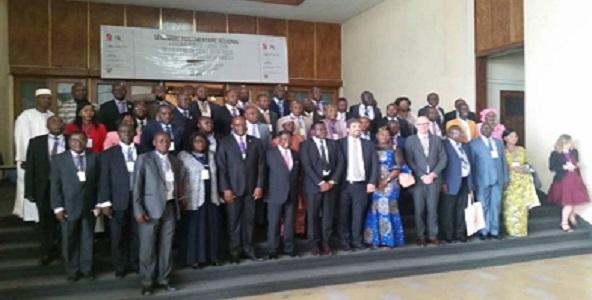
Article(s)
Parliamentarians from Francophone Africa meet in Kinshasa to discuss the abolition of the death penalty
By Parliamentarians for Global Action, on 12 June 2018
The 1st and 2nd June 2018, Parliamentarians for Global Action (PGA), Ensemble contre la peine de mort (Together against the death penalty, ECPM) and Culture pour la paix et la justice (Culture for peace and justice, CPJ) organised in Kinshasa (Democratic Republic of the Congo, DRC) a regional parliamentary seminar entitled “Abolition of the death penalty in Africa: the role of parliamentarians”, with the support of the European Union and of the Honourable Aubin Minaku, Speaker of the National Assembly of the DRC and Member of PGA.
2018
Democratic Republic of the Congo
Public Opinion
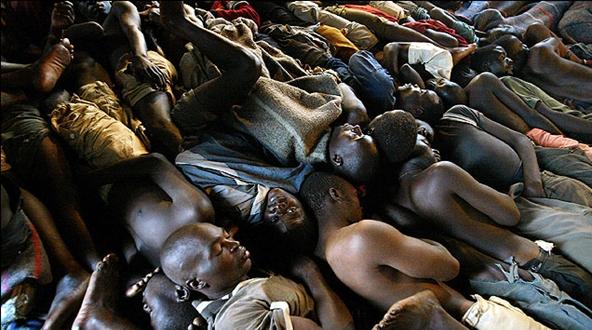
Article(s)
Malawi – five years after abolishing the mandatory death penalty
By Emile Carreau, on 19 September 2012
In 2007 abolitionists celebrated when the High Court of Malawi abolished the mandatory death penalty. In what become known as the Kafanteyeni ruling the mandatory death penalty was deemed by the bench as unconstitutional as it amounts to an arbitrary deprivation of life, denies an accused the right to a fair trial and the right to be free from inhuman and degrading treatment.
2012
Malawi
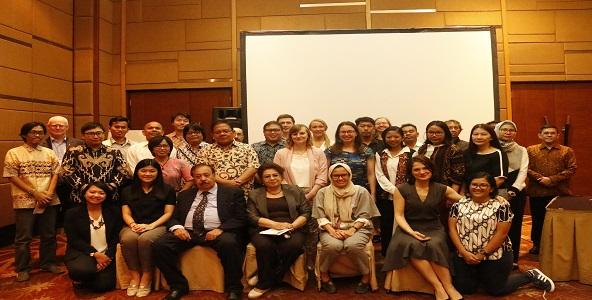
Article(s)
Dialogue on the death penalty during the 20th anniversary of the Reformasi
By Clémentine Etienne, on 27 June 2018
20 years after the end of the dictatorship, Indonesia is going through a period of legal changes and transition. What impact can abolitionist associations and NGOs working on the ground have in encouraging the actions of legal counsellors and civil society?
2018
Indonesia
Document(s)
Does care have to be at the periphery if crime is at the centre? A conversation that unspools the various threads tying feminism with crime.
By The Third Eye, on 15 February 2024
2024
Article
Gender
Women
More details See the document
Published on January 30, 2024.
The Third Eye invited Maitreyi Misra of Project 39A to help us think through our central idea: why do we need a feminist way of looking at crime, and how does that help the larger goal of social justice?
Project 39A is inspired by Article 39-A of the Indian Constitution, a provision that furthers the intertwined values of equal justice and equal opportunity by removing economic and social barriers. Using empirical research to re-examine practices and policies in the criminal justice system, Project 39A aims to trigger new conversations on legal aid, torture, forensics, mental health in prisons, and the death penalty.
- Document type Article
- Themes list Gender / Women
Document(s)
STRENGTHENING THE DEFENCE IN DEATH PENALTY CASES IN THE PEOPLE´S REPUBLIC OF CHINA: Empirical Research into the Role of Defence Councils in Criminal Cases Eligible for the Death Penalty
By Hans Jörg Albrecht / Max Planck Institute for Foreign and International Criminal Law, on 1 January 2006
2006
Article
China
More details See the document
This project examines the role of defence councils in Chinese criminal proceedings that can end up with the imposition of the death penalty. It aims to review the problems defence lawyers face in such proceedings, the defence strategies they apply and to examine whether the assignment of a defence lawyer makes a difference in the outcome of a criminal trial. Moreover, the project explores what can and should be done to empower defence councils to effectively represent suspects and accused in death penalty eligible cases.The objective of the study is to shed light on the problems experienced by criminal defence councils when defending capital crime cases and to generate information on how death penalty cases are processed through the Chinese system of justice as well as the determinants of the outcomes death penalty eligible criminal cases.
- Document type Article
- Countries list China
- Themes list Legal Representation,

Article(s)
Drug policy reform, harm reduction movement and the death penalty abolition movement have much in common
By Aurélie Plaçais, on 26 June 2019
As 26 June is “Support. Don’t Punish” Global Day of Action, the World Coalition shares some insight on the 2019 Harm Reduction International Conference which took place in Porto end of April.
2019
Drug Offenses
Article(s)
Vietnam considers reduction in scope of death penalty
on 9 February 2009
Vietnamese Justice Minister Ha Hung Cuong has proposed a reduction in the number of capital offences – a demand put forward by the World Coalition’s demands on World Day Against the Death Penalty.
2009
Drug Offenses
Viet Nam
Viet Nam

Article(s)
Congo’s Presidential Election Strengthens the Controversial New Constitution that Abolished Capital Punishment
By Delphine Lourtau and Marion Gauer, on 20 April 2016
On March 20, 2016, a tense presidential election in the Republic of the Congo resulted in the re-election of President Denis Sassou Nguesso, who has been in power for a total of 32 years. One of the election’s least discussed outcomes is its solidification of the new constitution that President Sassou introduced last year and that provides for abolition of the death penalty.
2016
Congo
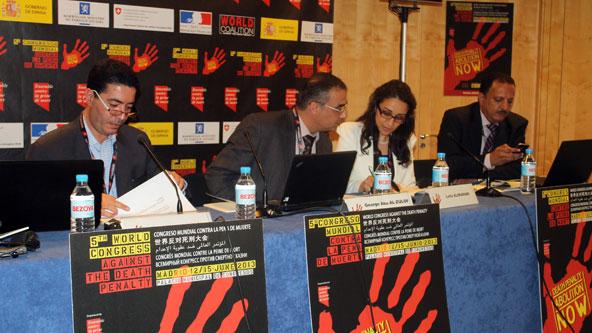
Article(s)
Small progress against the execution of minors
By Tiziana Trotta, on 14 June 2013
These are merely the very first steps down the road, but Iran, Sudan and Yemen, the only countries to apply the death penalty on juvelines along with Saudi Arabia, have just made some small progress on the issue.
2013
Iran (Islamic Republic of)
Juveniles
Sudan
Yemen
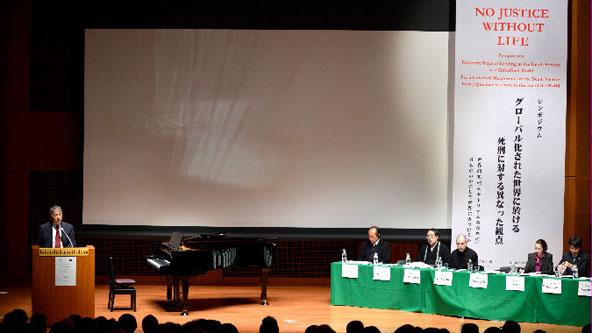
Article(s)
Japan’s death penalty under scrutiny
By The Advocates for Human Rights, on 5 November 2012
After a high-level conference on the abolition of the death penalty in Tokyo on October 29th, the United Nations’ Human Rights Council examined Japan’s record on October 31st as part of the Universal Periodic Review, a worldwide mechanism to monitor the enforcement of human rights. Major Japanese infringements concern the use of the death penalty.
2012
Clemency
Cruel, Inhuman and Degrading Treatment and Punishment
Death Row Conditions
Fair Trial
Intellectual Disability
Japan
Legal Representation
Mental Illness

Article(s)
The 8th World Congress reaffirms the importance of gender-based discussions
By World Coalition Against the Death Penalty, on 16 December 2022
The 19th World Day Against the Death Penalty highlighted the intersectional discrimination that women face in the judicial process leading to the death penalty, making visible one facet of the links between the death penalty and gender discrimination.
2022
Gender
Document(s)
Abolition of the Death Penalty in the Eastern Caribbean and Barbados
on 15 December 2020
2020
Lobbying
Barbados
Trend Towards Abolition
More details Download [ pdf - 2611 Ko ]
Greater Caribbean for Life has launched its educational toolkit to assist activists and organisations as they work toward abolishing the death penalty in the Greater Caribbean. The production of this toolkit forms part of GCL’s activities under its EU partnered project to educate on death penalty abolition in the Eastern Caribbean and Barbados.
The launch of the toolkit is timely as a few of these target countries recently voted against adopting the UN Moratorium on the use of the death penalty and countries that had previously chosen to abstain have now firmly voted against the resolution.
GCL members condemn the rise of violent crime in our region and express solidarity and compassion with the victims of crime, however, we reject the notion that capital punishment will act as a deterrent or foster respect for life in our communities.
It is our hope that this toolkit will assist in promoting respect for the right to life for all human beings in the Caribbean region.
- Document type Lobbying
- Countries list Barbados
- Themes list Trend Towards Abolition
Document(s)
2020 Activity Report
By World Coalition Against the Death Penalty, on 9 September 2021
2021
World Coalition
frMore details Download [ pdf - 496 Ko ]
Activity Report of the World Coalition Against the Death Penalty for 2020, as adopted by its General Assembly on 18 June 2021
- Document type World Coalition
- Available languages Rapport d'Activité 2020

Article(s)
‘Sakineh’ campaign to culminate in worldwide protests
on 25 August 2010
What started as an effort to save an Iranian woman sentenced to death by stoning is turning into a global movement for human rights and against capital punishment.
2010
Cruel, Inhuman and Degrading Treatment and Punishment
Iran (Islamic Republic of)
Public Opinion
Article(s)
Translations in Chinese
By World Coalition Against the Death Penalty, on 21 January 2013
The World Coalition Against the Death Penalty’s office in Paris, France, is currently calling for translation contributions in Chinese.
The objective is to award contracts for translation services for the publications of the World Coalition Against the Death Penalty for 30 months (mid 2013 – mid 2015).
2013
Article(s)
Web-Editor
By World Coalition Against the Death Penalty, on 17 October 2016
The World Coalition Against the Death Penalty is recruiting a Web-editor for its website.
2016
Document(s)
TESTIMONIES- 21 st World Day Against the Death Penalty
on 10 July 2023
2023
Campaigning
World Coalition
frMore details Download [ pdf - 759 Ko ]
This document has been compiled by the Secretariat of the World Coalition Against the Death Penalty with substantial aid from member organizations, including Abdorrahman Boroumand Center, Amnesty International, Cornell Center on the Death Penalty Worldwide, Free Mumia ! French Support Group (Collectif français “Libérons Mumia !”), German Coalition Against the Death Penalty, Justice Project Pakistan, […]
- Document type Campaigning / World Coalition
- Available languages TEMOIGNAGES - 21ème Journée mondiale contre la peine de mort
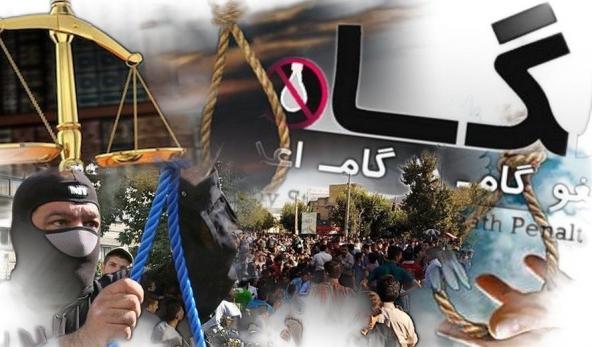
Article(s)
Ways to Restrict the Use of the Death Penalty in Iran
By Iran Human Rights, on 8 April 2019
Iran Human Rights (IHR); March 27, 2019: A part of the 11th Annual Report on the Death Penalty in Iran, by IHR, deals with the ways to restrict the use of the death penalty in Iran.
2019
Iran (Islamic Republic of)
Document(s)
‘Upholding the Cause of Civilization’: The Australian Death Penalty in War and Colonialism
By Mark Finnane, on 1 September 2022
2022
Academic report
Australia
More details See the document
The abolition of the death penalty in Queensland in 1922 was the first in Australian jurisdictions, and the first in the British Empire. However, the legacy of the Queensland death penalty lingered in Australian colonial territories. This article considers a variety of practices in which the death penalty was addressed by Australian decision-makers during the first half of the 20th century. These include the exemption of Australian soldiers from execution in World War I, use of the death penalty in colonial Papua and the Mandate Territory of New Guinea, hanging as a weapon of war in the colonial territories, and the retrieval of the death penalty for the punishment of war crimes. In these histories, we see not only that the Queensland death penalty lived on in other contexts but also that ideological and political preferences for abolition remained vulnerable to the sway of other historical forces of war and security.
This article was first pubished in Crime Justice Journal: https://www.crimejusticejournal.com/issue/view/119
- Document type Academic report
- Countries list Australia
Document(s)
Caught in a Web Treatment of Pakistanis in the Saudi Criminal Justice System
By Human Rights Watch / Justice Project Pakistan, on 8 September 2020
2020
NGO report
Pakistan
More details See the document
Report about the treatment of Pakistanis in the Saudi criminal justice system
- Document type NGO report
- Countries list Pakistan
- Themes list Discrimination, Foreign Nationals,
Document(s)
The State of Criminal Justice 2012
By American Bar Association / Ronald Tabak, on 1 January 2012
2012
NGO report
More details See the document
The American Bar Association recently published The State of Criminal Justice 2012, an annual report that examines major issues, trends and significant changes in America’s criminal justice system.
- Document type NGO report
- Themes list Country/Regional profiles,
Document(s)
The Advocacy Handbook: A Guide to Implementing Recommendations of the Criminal Justice/Mental Health Consensus Project
By Council of State Governments Justice Center, on 1 January 2006
2006
Campaigning
More details See the document
A how-to guide for advocates who want to improve the response to people with mental illnesses who are in contact with the criminal justice system. The Advocacy Handbook reflects a shared effort among NAMI (the National Alliance for the Mentally Ill), the National Mental Health Association (NMHA), the National Association of State Mental Health Program Directors (NASMHPD), the Bazelon Center for Mental Health Law, and the Criminal Justice / Mental Health Consensus Project.
- Document type Campaigning
- Themes list Networks,
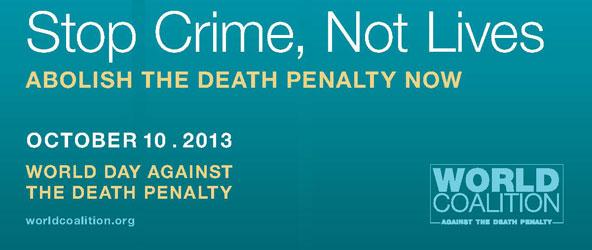
Article(s)
Calendar of events for World Day
By WCADP, on 10 September 2013
On 10 October 2013, the World Day Against the Death Penalty is focusing on the death penalty in the Greater Caribbean. Browse the schedule and the map to prepare and promote the events planned around the world on the big day.
2013
Cruel, Inhuman and Degrading Treatment and Punishment
Document(s)
Convicting the Innocent: Where Criminal Prosecutions Go Wrong
By Brandon L. Garrett / Harvard University Press, on 1 January 2011
2011
Book
United States
More details See the document
Very few crimes committed in the United States involve biological evidence that can be tested using DNA. Convicting the Innocent makes a powerful case for systemic reforms to improve the accuracy of all criminal cases.
- Document type Book
- Countries list United States
- Themes list Innocence,
Document(s)
The Mercy Workers, Death Penalty Mitigation Specialists
By Maurice Chammah, The Marshall Project, on 2 March 2023
2023
Article
Legal Representation
United States
More details See the document
For three decades, a little-known group of “mitigation specialists” has helped save death-penalty defendants in the USA by documenting their childhood traumas. A rare look inside one case.
- Document type Article
- Countries list United States
- Themes list Legal Representation
Document(s)
Identifying and (Re)formulating Prophylactic Rules, Safe Harbors, and Incidental Rights in Constitutional Criminal Procedure
By Susan R. Klein / Michigan Law Review, on 1 January 2001
2001
Article
United States
More details See the document
The Miranda conundrum runs something like this: If the Miranda decision represents true constitutional interpretation, and all unwarned statements taken during custodial interrogation are compelled” within the meaning of the self-incrimination clause, the impeachment and “”fruits”” exceptions to Miranda should fall. If it is not true constitutional interpretation, than the Court has no business reversing state criminal convictions for its violation. I offer here what I hope is a satisfying answer to this conundrum, on both descriptive and normative levels, that justifies not only Miranda but a host of similar Warren, Burger, and Rehnquist Court decisions as well. In Part I, I introduce and define the terms “”constitutional prophylactic rule,”” “”constitutional safe harbor rule,”” and “”constitutional incidental right,”” and attempt to legitimate their use. I further demonstrate that constitutional criminal procedure is so flush with such prophylactic and safe harbor rules and incidental rights that trying to eliminate them now, by either reversing a large number of criminal procedure cases or “”constitutionalizing”” all of those holdings, would do more harm than good. I propose that we accept the fact that these rules and rights are a fixed part of our constitutional landscape, and focus instead on minimizing their risks and maximizing their benefits”
- Document type Article
- Countries list United States
- Themes list Fair Trial,
Document(s)
The politics of increasing punitiveness and the rising populism in Japanese criminal justice policy
By Setsuo Miyazawa / Punishment and Society, on 1 January 2008
2008
Article
Japan
More details See the document
The purpose of this article is (1) to establish that increasing punitiveness characterizes criminal justice policies in Japan and (2) to explain this trend in terms of the penal populism promoted by crime victims and supporting politicians. This article first examines newspaper articles to illuminate the increasingly punitive character of recent criminal justice policies in Japan in terms of both legislation and judicial decisions. The next section discusses the main contributing factors behind this trend and its public acceptance. The next two sections discuss two related issues: the public’s subjective sense of security, and the lack of a role for empirical criminologists in criminal justice policy making in Japan. The concluding section compares the Japanese and Anglo-American situations and argues that the same penal populism seen in Anglo-American countries is rapidly rising in Japan, and that public distrust of government has ironically increased the state’s investigative, prosecutorial, and sentencing powers in Japan. This article closes with the conjecture that police, prosecutors, and judges are unlikely to relinquish their increased power in the event that they gain the public’s trust and equally unlikely in the event of a change of the ruling party.
- Document type Article
- Countries list Japan
- Themes list Networks,
Document(s)
Reforming Criminal Justice
By Arizona State University (ASU), on 1 January 2017
2017
Academic report
More details See the document
Reforming Criminal Justice is a four-volume report meant to enlighten reform efforts in the United States with the research and analysis of leading academics. Broken down into individual chapters—each authored by a top scholar in the relevant field—the report covers dozens of topics within the areas of criminalization, policing, pretrial and trial processes, punishment, incarceration, and release. The chapters seek to enhance both professional and public understanding of the subject matter, to facilitate an appreciation of the relevant scholarly literature and the need for reform, and to offer potential solutions. The ultimate goal is to increase the likelihood of success when worthwhile reforms are debated, put to a vote or otherwise considered for action, and implemented in the criminal justice system.
- Document type Academic report
- Themes list Due Process , Fair Trial, Legal Representation, Death Penalty,
Document(s)
Wrongful Convictions and the Culture of Denial in Japanese Criminal Justice
By David T. Johnson / The Asia-Pacific Journal, on 1 January 2015
2015
Article
Japan
More details See the document
The release of Hakamada Iwao from death row in March 2014 after 48 years of incarceration provides an opportunity to reflect on wrongful convictions in Japanese criminal justice. My approach is comparative because this problem cannot be understood without asking how Japan compares with other countries: to know only one country is to know no country well. Comparison with the United States is especially instructive because there have been many studies of wrongful conviction there and because the U.S. and Japan are the only two developed democracies that retain capital punishment and continue to carry out executions on a regular basis. On the surface, the United States seems to have a more serious problem with wrongful convictions than Japan, but this gap is more apparent than real. To reduce the problem of wrongful convictions in Japanese criminal justice, reformers must confront a culture of denial that makes it difficult for police, prosecutors, and judges to acknowledge their own mistakes.
- Document type Article
- Countries list Japan
- Themes list Fair Trial, Innocence,
Document(s)
Philippines – Committee on the Elimination of Discrimination Against Women – Death Penalty – June 2022
on 21 July 2022
2022
NGO report
Philippines
Women
More details Download [ pdf - 443 Ko ]
The Government of the Philippines has taken commendable steps toward protecting and promoting the rights of women overseas Filipino workers (OFWs), but those workers remain vulnerable to exploitation and abuse, and when they come into conflict with the law in their host countries, their vulnerabilities are compounded by linguistic and legal barriers, as well as judicial systems which fail to account for the gendered context in which they allegedly committed criminal acts. The Government of the Philippines should do more to ensure protection of the rights of these women OFWs, particularly when they are at risk of being sentenced to death.
- Document type NGO report
- Countries list Philippines
- Themes list Women
Document(s)
Blaming it on the past: Usages of the Middle Ages in contemporary discourses of the death penalty in England
By Death Penalty Research Unit (DPRU), University of Oxford, on 5 February 2024
2024
Academic Article
United Kingdom
More details See the document
Published in December 2023.
In popular, intellectual and political culture, the Middle Ages are intrinsically tied to violent images of public executions. To historians of the medieval period, this temporal attachment of the death penalty to a remote period is puzzling, especially since it is still widely enforced in the world today and was only relatively recently abolished in Europe. Capital punishment is not only a part of history, but a modern-day reality. Why, therefore, do we pin this punishment to the Middle Ages? This paper aims to analyse the discourses surrounding the usage of the Middle Ages in modern discussions on the death penalty, and to clarify medieval practices of capital punishment, showing how remote they are from our contemporary understanding
- Document type Academic Article
- Countries list United Kingdom
Document(s)
Capital Punishment A Hazard to a Sustainable Criminal Justice System?
By Ashgate Publishing / Lill Scherdin, on 8 September 2020
2020
Book
More details See the document
This book questions whether the death penalty in and of itself is a hazard to a sustainable development of criminal justice. As most jurisdictions move away from the death penalty, some remain strongly committed to it, while others hold on to it but use it sparingly. This volume seeks to understand why, by examining the death penalty’s relationship to state governance in the past and present. It also examines how international, transnational and national forces intersect in order to understand the possibilities of future death penalty abolition.The chapters cover the USA – the only western democracy that still uses the death penalty – and Asia – the site of some 90 per cent of all executions. Also included are discussions of the death penalty in Islam and its practice in selected Muslim majority countries. There is also a comparative chapter departing from the response to the mass killings in Norway in 2011. Leading experts in law, criminology and human rights combine theory and empirical research to further our understanding of the relationships between ways of governance, the role of leadership and the death penalty practices.
- Document type Book
- Themes list Due Process , International law, Trend Towards Abolition,
Document(s)
Portuguese : A PENA DE MORTE NA LEGISLAÇÃO CRIMINAL COMUM DO BRASIL -O CASO MOTTACOQUEIRO E SUA REPERCUSSÃO
By SÉRGIO DA COSTA FRANCO, on 8 September 2020
Article
Brazil
More details See the document
Este artigo trata da pena de morte dentro da legislação criminal brasileira, analisando algumas sanções impostas no período colonial, por meio do Livro V das Ordenações Filipinas, bem como da legislação pertinente no Brasil Império, pelo Código Criminal de 1830 e suas reformas de 1832 e 1835. Por fim, discorre sobre o processo Motta Coqueiro e sua repercussão na sociedade, após decisão condenatória do réu, posteriormente provado inocente, com o intuito de acabar com este tipo de penalidade no Brasil.
- Document type Article
- Countries list Brazil
- Themes list Networks,
Document(s)
The death penalty in Egypt: Ten year after the uprising
By Jeed Basyouni - Reprieve, on 10 August 2021
2021
NGO report
Cruel, Inhuman and Degrading Treatment and Punishment
Death Row Conditions
Egypt
Fair Trial
More details See the document
Reprieve wrote this report about the use of the death penalty in Egypt.
- Document type NGO report
- Countries list Egypt
- Themes list Cruel, Inhuman and Degrading Treatment and Punishment / Death Row Conditions / Fair Trial
Document(s)
Muzzling critical voices: Politicized trials before Saudi Arabia’s Specialized Criminal Court
By Amnesty International, on 8 September 2020
2020
NGO report
Saudi Arabia
aresarfrMore details See the document
Despite the Saudi Arabian authorities’ rhetoric about reforms, they have unleashed an intense crackdown on citizens promoting change in the last few years. One of the instruments of that repression has been the Specialized Criminal Court (SCC), which was set up in 2008 to try individuals accused of terror-related crimes. Amnesty International has documented the cases of 95 individuals who were tried before the SCC between 2011 and 2019. It has concluded that the SCC’s judges have presided over grossly unfair trials, handing down prison sentences of up to 30 years and numerous death sentences, in an effort to silence dissent.
- Document type NGO report
- Countries list Saudi Arabia
- Themes list Country/Regional profiles, Terrorism,
- Available languages AR Muzzling critical voicesArabia Saudí: Silenciar las voces críticas: Juicios politizados ante el Tribunal Penal Especializado de Arabia Saudí - Resumen ejecutivo y conclusionesتكميم الأفواه المعارِضة: محاكمات مسيّسة أمام المحكمة الجزائية المتخصصة في السعوديةArabie Saoudite: Reduire les voix critiques au silence: Des proces politises devant le Tribunal penal special en Arabie Saoudite
Document(s)
United Nations Principles and Guidelines on Access to Legal Aid in Criminal Justice Systems
By Economic and Social Council, on 1 January 2012
2012
United Nations report
enarrufresMore details See the document
Resolution adopted by the Economic and Social Council [on the recommendation of the Commission on Crime Prevention and Criminal Justice (E/2012/30 and Corr.1 and 2)]
- Document type United Nations report
- Themes list International law,
- Available languages Japanese : 联合国关于在刑事司法系统中获得法律援助机会的 原则和准则"مبادئ الأمم المتحدة وتوجيهاا بشأن سبل الحصول على /٢٠١٢ المساعدة القانونية في نظم العدالة الجنائية"Принципы и руководящие положения Организации Объединенных Наций, касающиеся доступа к юридической помощи в системах уголовного правосудияPrincipes et lignes directrices des Nations Unies sur l’accès à l’assistance juridique dans le système de justice pénalePrincipios y directrices de las Naciones Unidas sobre el acceso a la asistencia jurídica en los sistemas de justicia penal
Document(s)
The State of Criminal Justice 2011
By American Bar Association / Ronald Tabak, on 1 January 2011
2011
NGO report
More details See the document
The State of Criminal Justice 2011 contains a chapter on death penalty by Ronald Tabak (Ch. 19). Tabak explores legislative changes, the declining use of the death penalty, important Supreme Court decisions and the adequacy of representation.
- Document type NGO report
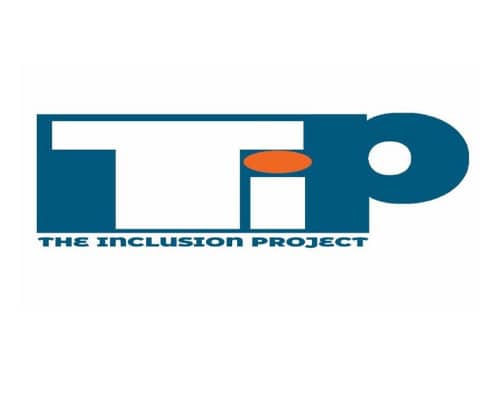
Member(s)
The Inclusion Project
on 13 September 2024
The Inclusion Project (TIP) is a legal services provider founded in 2019 and registered in Nigeria as The Inclusion Project.
2024
Nigeria

Member(s)
Citizens United for Rehabilitation of Errants (CURE)
on 30 April 2020
Citizens United for Rehabilitation of Errants (CURE) is a grassroots organization that was founded in Texas in 1972. It became a national organization in 1985. CURE believes that prisons should be used only for those who absolutely must be incarcerated and that those who are incarcerated should have all of the resources they need to […]
2020
United States
Document(s)
Debunking the deterrence theory
By World coalition against the death penalty, on 9 July 2024
2024
Campaigning
World Coalition
frMore details Download [ pdf - 593 Ko ]
- Document type Campaigning / World Coalition
- Available languages La théorie de la dissuasion démystifiée

Member(s)
The American Constitution Society (ACS)
on 5 September 2022
The American Constitution Society (ACS) is a United States-based network of progressive lawyers, law students, judges, policymakers, legislators, and academics dedicated to realizing the promises of the U.S. Constitution by advancing and defending democracy, justice, equality, and liberty; securing a government that serves the public interest; and guarding against the abuse of law and the […]
2022
United States
Article(s)
World Coalition calls on Canada to keep up its efforts against the death penalty
on 10 March 2009
The World Coalition has sent a letter to Canadian Prime Minister Stephen Harper, asking him to “protect its nationals sentenced to death abroad, whether it is in a democratic country or not”.
2009
Canada
Canada
Clemency
United States
Document(s)
Intiatives World Day 2005
By World coalition against the death penalty , on 10 October 2005
2005
Campaigning
Trend Towards Abolition
frMore details See the document
Intiatives World Day 2005
- Document type Campaigning
- Themes list Trend Towards Abolition
- Available languages Initiatives journée mondiale 2005
Document(s)
Leaflet – World Day 2024 & 2025
By World coalition against the death penalty, on 10 June 2024
2024
Campaigning
World Coalition
arfrMore details Download [ pdf - 1325 Ko ]
Every 10th October, the World Coalition Against the Death Penalty and abolitionist actors worldwide celebrate the World Day Against the Death Penalty. It is an occasion to highlight the progress achieved in the global campaign for the abolition of capital punishment. In 2024 and 2025, the World Day will serve as an opportunity to challenge […]
- Document type Campaigning / World Coalition
- Available languages كتيب - اليوم العالمي 2024 و 2025Brochure - Journée mondiale 2024 & 2025
PHIL_2_page_handout_EN
on 10 August 2021
2021

22nd World Day Against the Death Penalty – The death penalty protects no one.
on 12 June 2024
Observed every 10 October, the World Day Against the Death Penalty unifies the global abolitionist movement and mobilizes civil society, political leaders, lawyers, public opinion and more to support the call for the universal abolition of capital punishment.
2024
Public Opinion
Trend Towards Abolition
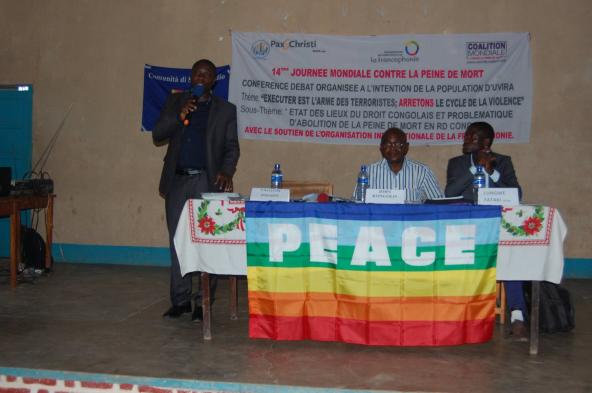
Article(s)
Towards the abolition of the death penalty in DRC: advances to be confirmed
By Olivier LUNGWE FATAKI - Pax Christi Uvira, on 13 December 2016
To date, the Democratic Republic of the Congo maintains the death penalty in its legislation. The proponents of the capital punishment argue that it remains an efficient tool for deterrence in general as well as a solution to the recurring criminal phenomenon hitting the country’s Eastern part.
2016
Democratic Republic of the Congo
Moratorium
Public Opinion
Document(s)
The Dark At the Top of the Stairs: Four Destructive Influences of Capital Punishment on American Criminal Justice
By David T. Johnson / Franklin Zimring / Social Science Research Network , on 1 January 2011
2011
Academic report
More details See the document
Executionhas also (1) had a powerful negative influence on the substantive criminal law; (2) promoted the practice of using extreme penal sanctions as status rewards to crime victims and their families; (3) provided moral camouflage for a penalty of life imprisonment without possibility of parole, which is almost as brutal as state killing; and (4) diverted legal andjudicial resources from the scrutiny of other punishments and governmental practicesin an era of mass imprisonment. This chapter discusses these four latent impacts of attempts to revive and rationalize the death penalty in the United States.
- Document type Academic report
- Themes list Arbitrariness,
Document(s)
End of its Robe: How Killing the Death Penalty can Revive Criminal Justice
By Brandon L. Garrett , on 1 January 2017
2017
Book
United States
More details See the document
Brandon Garrett hand-collected and analyzed national data, looking for causes and implications of this turnaround. End of Its Rope explains what he found, and why the story of who killed the death penalty, and how, can be the catalyst for criminal justice reform.
- Document type Book
- Countries list United States
- Themes list Due Process , Public debate, Death Penalty, Country/Regional profiles,
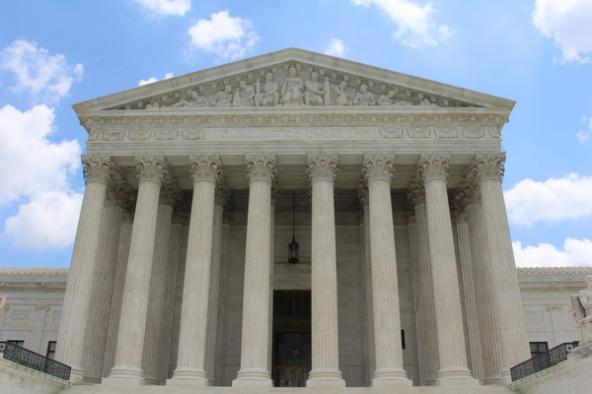
Article(s)
US Federal Executions Resume
By Louis Linel, on 28 July 2020
It has been 17 years since the United States decided on a de facto moratorium on federal executions, which can be carried out only for certain federal criminal offences. This moratorium, however, ended in July.
2020
Moratorium
United States

